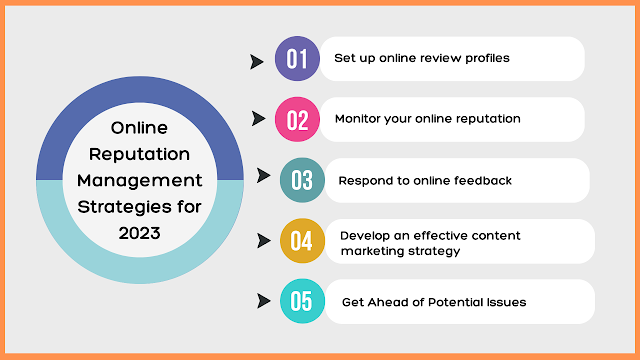What does a digital marketing company do
What does a digital marketing company do
A digital marketing company specializes in promoting brands, products, or services using digital channels and technologies. These companies employ a wide range of strategies and tactics to help businesses reach their target audience, engage customers, and drive conversions. Here's an in-depth look at what a digital marketing company does:For more information blogg visi Little Thing Everydays
1. Search Engine Optimization (SEO)
SEO is the process of optimizing a website to rank higher in search engine results pages (SERPs). Digital marketing companies use various techniques to improve a website's visibility, including:
- Keyword Research: Identifying relevant keywords that potential customers are searching for.
- On-Page SEO: Optimizing individual web pages, including meta tags, headers, content, and images.
- Off-Page SEO: Building high-quality backlinks from reputable websites.
- Technical SEO: Improving website speed, mobile-friendliness, and overall user experience.
2. Content Marketing
Content marketing involves creating and distributing valuable, relevant content to attract and engage a target audience. This can include:
- Blog Posts: Writing informative articles that address customer pain points and provide solutions.
- Infographics: Visual representations of information that are easy to understand and share.
- Videos: Engaging video content that can explain complex topics or showcase products.
- E-books and Whitepapers: In-depth resources that provide detailed information on specific subjects.
3. Social Media Marketing
Social media marketing leverages platforms like Facebook, Instagram, Twitter, LinkedIn, and Pinterest to connect with audiences. Strategies include:
- Content Creation: Crafting posts, images, and videos tailored to each platform.
- Community Management: Engaging with followers, responding to comments, and fostering a sense of community.
- Paid Advertising: Running targeted ads to reach specific demographics and interests.
- Analytics: Monitoring performance and adjusting strategies based on data insights.
4. Pay-Per-Click (PPC) Advertising
PPC advertising involves placing ads on search engines and other platforms where advertisers pay each time their ad is clicked. Key activities include:
- Keyword Bidding: Selecting and bidding on keywords to display ads in search results.
- Ad Creation: Designing compelling ad copy and visuals that encourage clicks.
- Campaign Management: Monitoring and optimizing campaigns to maximize return on investment (ROI).
5. Email Marketing
Email marketing focuses on sending targeted messages to a list of subscribers. Techniques include:
- List Building: Collecting email addresses through sign-up forms, landing pages, and other methods.
- Campaign Design: Creating newsletters, promotional emails, and automated drip campaigns.
- Personalization: Tailoring content to individual subscriber preferences and behaviors.
- Analytics: Tracking open rates, click-through rates, and conversions to improve future campaigns.
6. Conversion Rate Optimization (CRO)
CRO involves analyzing and improving a website's performance to increase the percentage of visitors who take a desired action, such as making a purchase or filling out a form. This includes:
- A/B Testing: Experimenting with different versions of web pages to see which performs better.
- User Experience (UX) Design: Enhancing website navigation, layout, and functionality to provide a seamless user experience.
- Analytics: Using tools like Google Analytics to identify bottlenecks and areas for improvement.

7. Affiliate Marketing
Affiliate marketing is a performance-based strategy where businesses reward affiliates for driving traffic or sales through their marketing efforts. A digital marketing company might:
- Recruit Affiliates: Identify and partner with influencers, bloggers, and other affiliates.
- Provide Resources: Supply affiliates with banners, links, and promotional materials.
- Track Performance: Monitor affiliate activity and track conversions to calculate commissions.
8. Online Reputation Management (ORM)
ORM involves monitoring and managing a brand's online reputation. This includes:
- Review Management: Encouraging positive reviews and responding to negative feedback.
- Social Listening: Tracking brand mentions across social media and other platforms.
- Content Creation: Producing positive content to improve the brand's image.
9. Web Design and Development
A digital marketing company often offers web design and development services to create and maintain a company’s online presence. This includes:
- Website Design: Creating visually appealing and user-friendly website designs.
- Development: Building and maintaining websites using various coding languages and platforms.
- SEO Integration: Ensuring that the website is optimized for search engines from the ground up.
10. Analytics and Reporting
A crucial part of digital marketing is measuring and analyzing performance. Companies provide:
- Dashboard Creation: Setting up dashboards that display key metrics in real-time.
- Regular Reporting: Generating reports that detail campaign performance and ROI.
- Data Analysis: Interpreting data to make informed decisions and refine strategies.
Conclusion
Digital marketing companies are essential partners for businesses looking to navigate the complex online landscape. They provide a comprehensive suite of services designed to enhance online visibility, engage customers, and drive business growth. By leveraging their expertise in SEO, content marketing, social media, PPC, email marketing, CRO, affiliate marketing, ORM, web design, and analytics, these companies help businesses achieve their marketing goals and stay competitive in the digital age.













No comments